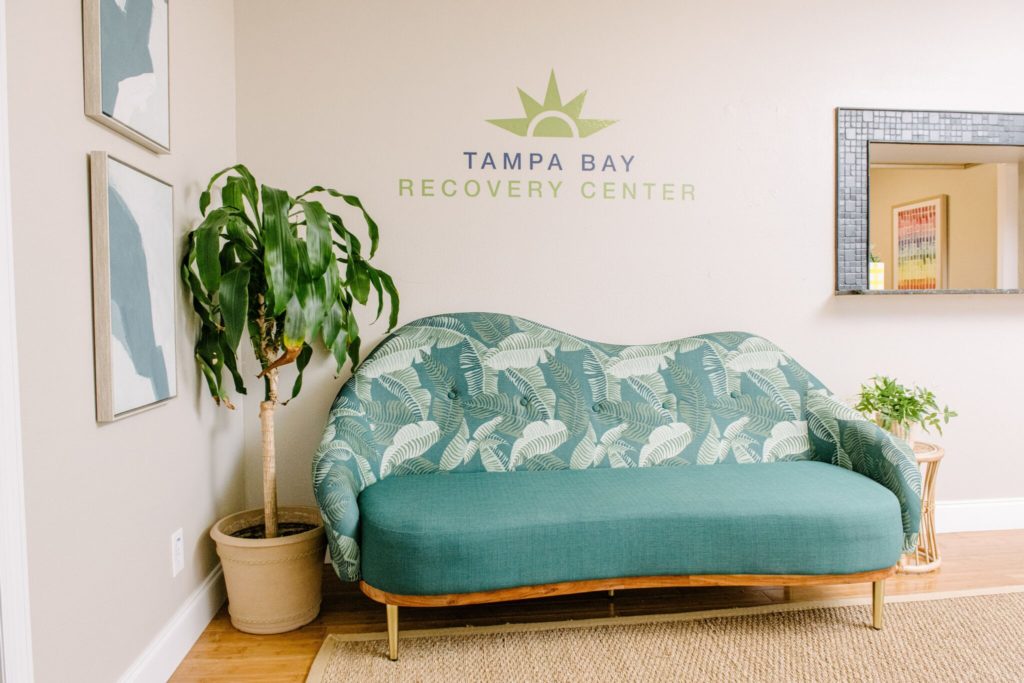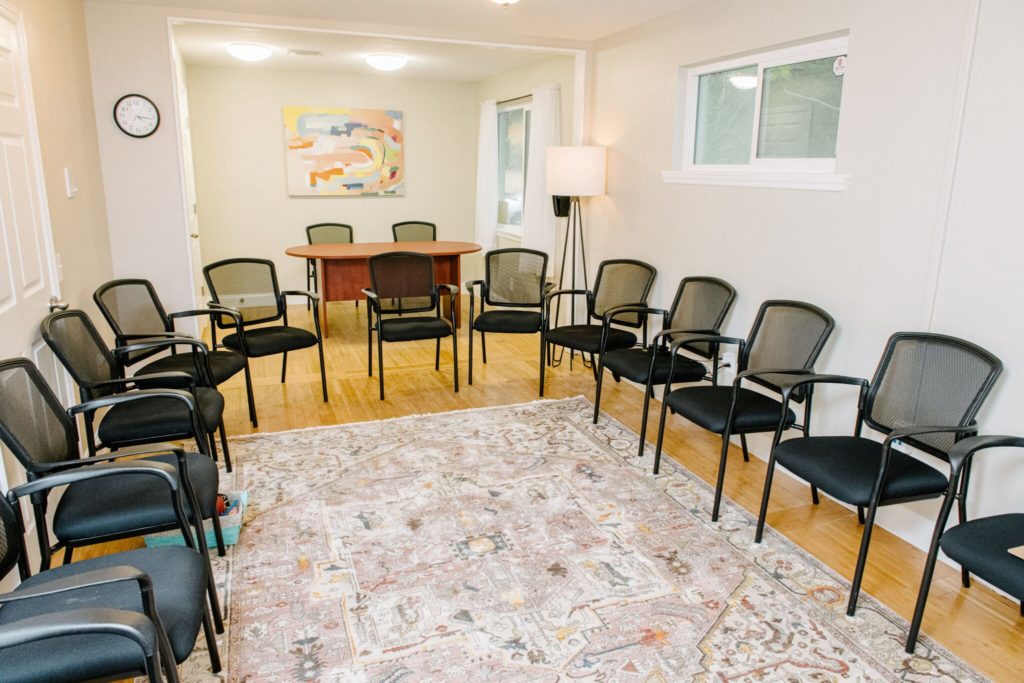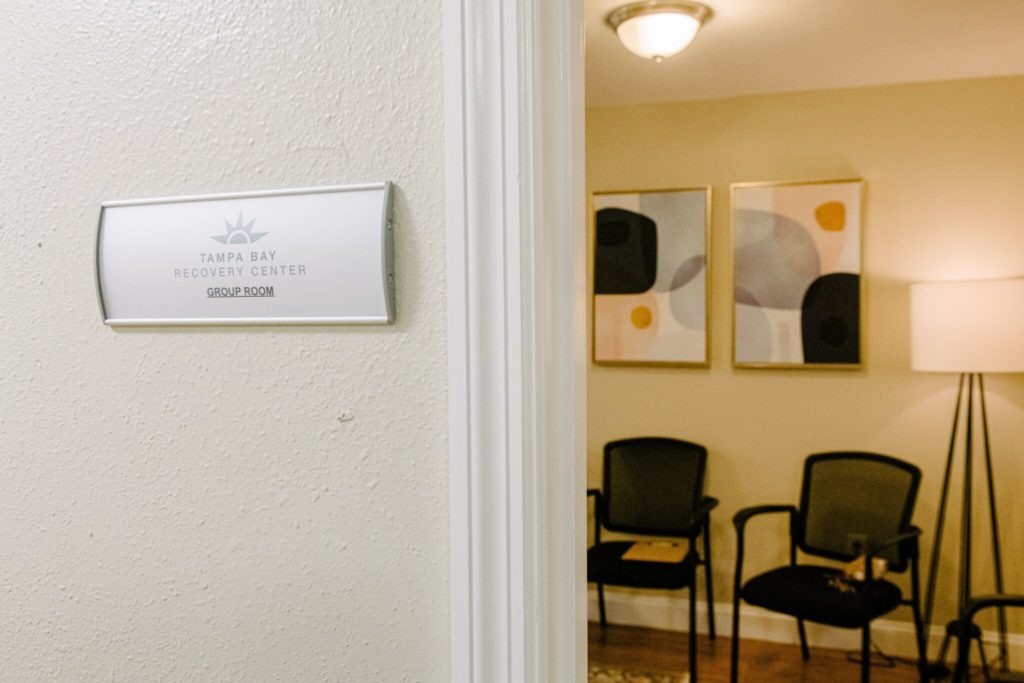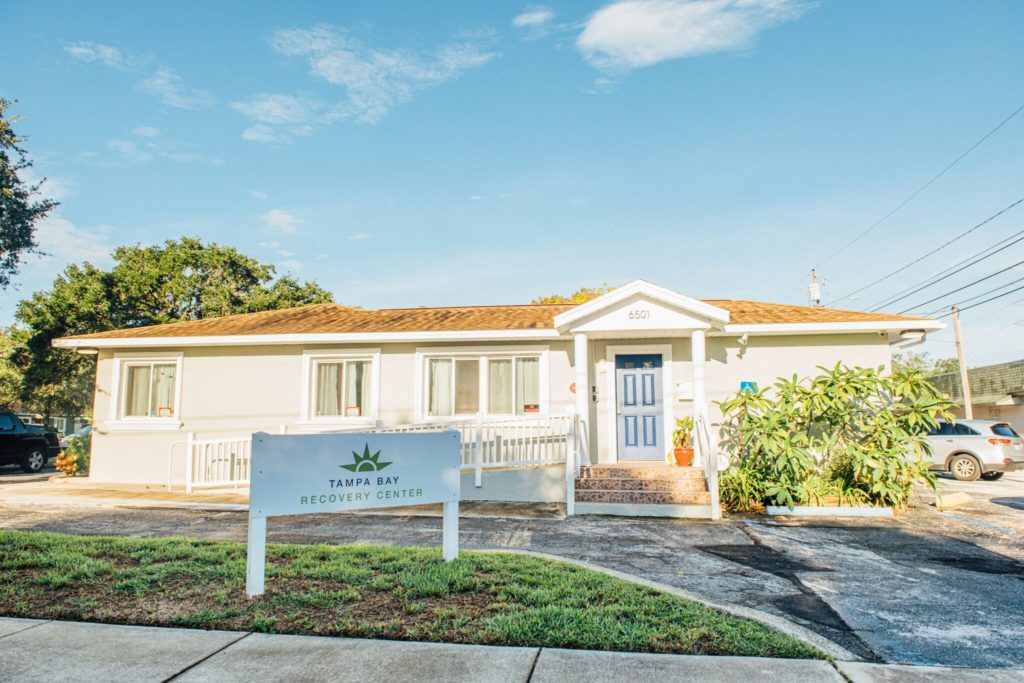Begin Dual Diagnosis Treatment in Tampa Bay Today
Tampa Bay Recovery Center has helped hundreds of people recover from dual-diagnosis disorders. As an in-network facility, we’re committed to helping you find the program that supports your needs.
Begin Dual Diagnosis Treatment in Tampa Bay Today
Tampa Bay Recovery Center has helped hundreds of people recover from dual-diagnosis disorders. As an in-network facility, we’re committed to helping you find the program that supports your needs.
Medically Reviewed
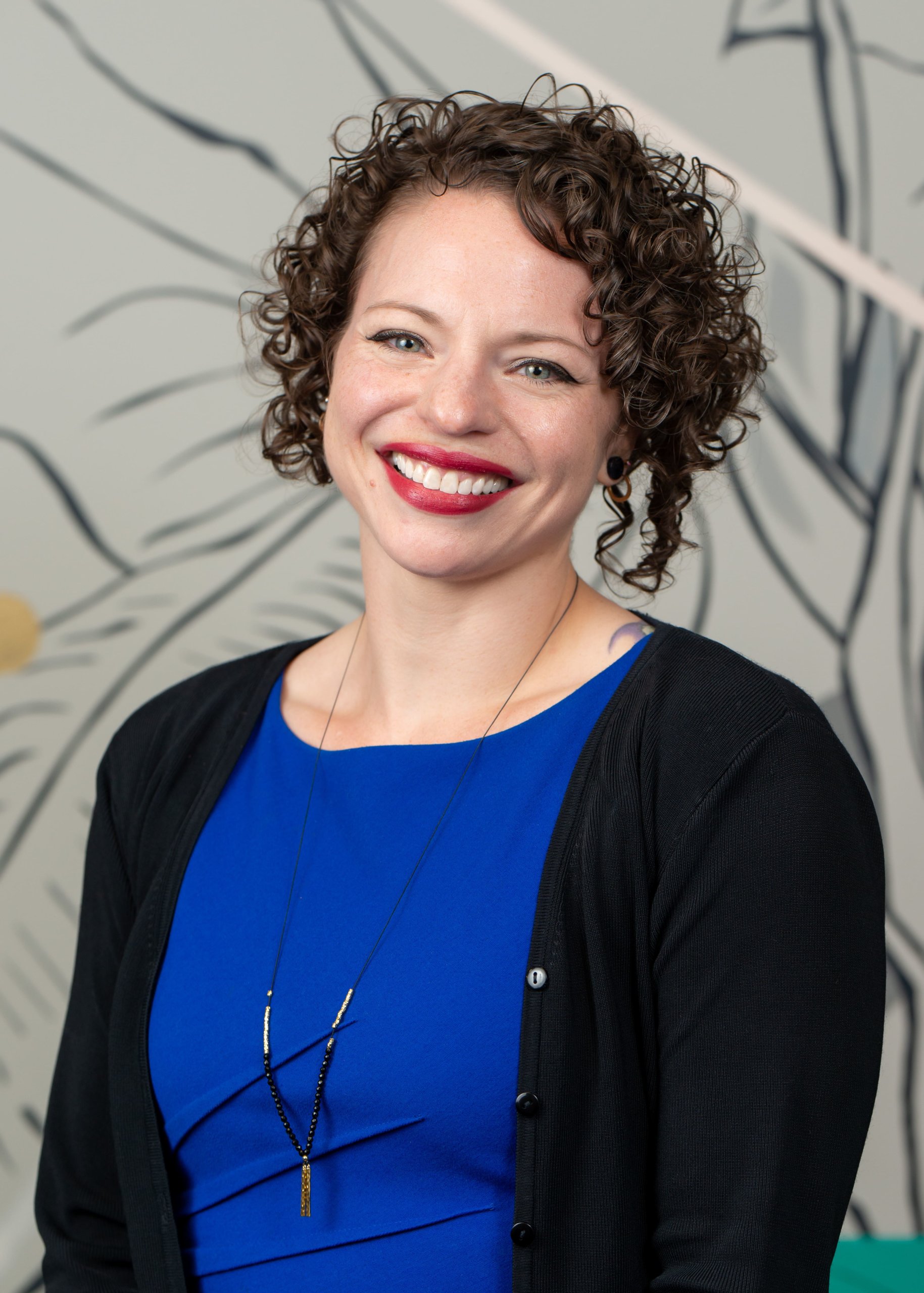
Medically reviewed by Erika Dalton, LMSW
Written by Tampa Bay Recovery staff
Updated on January 22, 2024
Medically Reviewed

Medically reviewed by Erika Dalton, LMSW
Written by Tampa Bay Recovery staff
Updated on January 22, 2024
Contents
- What Is a Dual Diagnosis Disorder?
- Why Are Dual Diagnosis Disorders So Common?
- Most Common Dual Diagnosis Disorders
- Signs & Symptoms of a Dual Diagnosis Disorder
- Do I Need a Dual Diagnosis Treatment Center?
- What to Expect at Our Dual Diagnosis Treatment in Tampa
- Find Help for a Dual Diagnosis Disorder Today
- Additional Resources
Rehab in St. Petersburg
It’s time to put your health first. Call us right now to learn how we can help you break the cycle of addiction for good and create a new life of possibility
At our dual diagnosis treatment in Tampa, we believe that dual diagnosis should be the standard for addiction treatment, not the exception. Often, substance abuse and addiction precede the onset of a mental illness. However, no matter which disorder occurs first, addiction and mental illness can feed off each other.
Mental health symptoms can lead to increased drug use. In turn, increased drug use can exacerbate mental health symptoms, which can push the person deeper into the downward spiral of addiction. Without professional care, this devastating cycle may be impossible to escape.
Tampa Bay Recovery Center is a Joint Commission-accredited facility and provides lasting outcomes for all of our clients. If you have a dual-diagnosis disorder and need treatment, call us now at (813) 733-8774.
What Is a Dual Diagnosis Disorder?
A dual-diagnosis disorder is a co-occurring mental health and substance use disorder (SUD). Clients with a dual diagnosis need both addiction and mental health treatment to heal from either condition. In other words, both disorders affect one another—both must be treated at the same time.
According to the 2022 National Survey on Drug Use and Health (NSDUH), of the 46.5 million people who had SUD, nearly half—21.5 million—also had a co-occurring mental health disorder. In addition, people with serious mental illnesses are more likely to have severe SUD. While 1.8% of those without a mental illness have a severe addiction, 18.3% of those with a serious mental illness also have a severe SUD.
Furthermore, despite how often these disorders co-occur, in 2022, only 17% of adults with a dual-diagnosis disorder got treatment for both conditions.
Why Are Dual Diagnosis Disorders So Common?
There are a few reasons why dual-diagnosis disorders are so common. First, both conditions have similar causes. For instance, childhood trauma makes a person more likely to develop either or both disorders.
Second, drugs and alcohol, impact your brain’s normal functioning, inducing feelings of intoxication or euphoria. They manipulate the release of certain chemicals within your brain and body, influencing mood, energy, and perception. Over time, this changes the way your brain works and could cause a mental illness.
Lastly, many people with untreated mental health disorders mask their symptoms with substance abuse. Substance abuse often blunts or numbs mental health symptoms. For some people, this means that their mental health symptoms will appear in full force during detox.
Living with mental health conditions like depression, anxiety, and PTSD can make life feel burdensome. But drugs and alcohol only worsen these conditions in the long run. Our dual diagnosis treatment program in Tampa aims to help clients recover from both disorders.
Most Common Dual Diagnosis Disorders
As we discussed earlier on this page, dual diagnosis means that a person has both a mental illness and a substance use disorder. Any mental health disorder can co-occur with addiction. However, some mental health disorders are more likely than others to contribute to dual diagnosis.
Here are examples of the mental health disorders that are most commonly involved in dual diagnosis:
Anxiety disorders are among the most common mental health disorders. They include:
- Generalized Anxiety Disorder (GAD)
- Social Anxiety
- Obsessive-Compulsive Disorder (OCD)
- Panic Disorders
Attention-Deficit/Hyperactivity Disorder (ADHD) could lead to prescription drug misuse of medications like Adderall or Ritalin.
Depression, like anxiety, is another common mental health disorder with many types, such as:
- Major Depressive Disorder (MDD)
- Seasonal Affective Disorder (SAD)
- Dysthymia
- Postpartum Depression
Bipolar Disorder causes a person’s mood to swing from manic to depressive. There are different types of Bipolar Disorders depending on how a person’s moods cycle and peak.
Post-traumatic stress disorder (PTSD) causes several symptoms that can be disruptive to a person’s everyday life, such as flashbacks and hypervigilance. Some people with PTSD abuse substances to self-medicate for these symptoms. Trauma therapy can help clients recover from PTSD.
Schizophrenia and Schizoaffective Disorders both cause a person to have delusions or hallucinations. Some people use drugs and alcohol to escape these symptoms. In addition, people with these disorders often struggle with isolation and mistreatment. They could turn to drugs and alcohol as a way to cope with low self-esteem and loneliness as a result.
Borderline Personality Disorder (BPD) makes it difficult for a person to regulate their emotions. They might turn to drugs or alcohol to regulate their extreme emotional states. Alternatively, self-injurious and reckless behaviors are a symptom of BPD, and substance abuse could be a means of self-harm.
Ready to Escape Addiction? Let's get Started
Tampa Bay Recovery Center is a premier leader in the provision of addiction treatment services. If you or someone you love is in need of professional care to address a substance use disorder, reach out to us right now at (813) 733-8774 to speak with an admissions specialist who can get you started on the road to recovery.
Signs & Symptoms of a Dual Diagnosis Disorder
The signs and symptoms of dual diagnosis disorders can vary widely depending on which disorders a person has developed. It is extremely unlikely that a person will develop a mental illness and a substance abuse problem at the exact same time. In almost every case, one of these concerns occurs first, and its effects lead to the onset of the other one.
Here are some general signs of substance use disorders and mental health disorders, both of which must be present for a person to have a dual diagnosis:
- Withdrawing from family and friends
- Losing interest in topics, activities, or events that were once of great importance
- Significant change in personality
- Apparent lack of attention to grooming and personal hygiene
- Acting with uncharacteristic violence or recklessness
- Inability to focus, concentrate, or follow a conversation
- Frequent unexplained absences from work or school
- Failing to pay bills, do household chores, or otherwise fulfill personal responsibilities
- Altered sleep patterns, which may include both insomnia and hypersomnia
- Drastic changes in energy level
Many of these symptoms are characteristic of either a mental health or substance use disorder occurring on its own. To receive effective care at a dual diagnosis treatment center in Florida, a person must first complete a thorough assessment and receive an accurate diagnosis.
Do I Need a Dual Diagnosis Treatment Center?
If you use drugs and alcohol to cope with underlying mental health symptoms, then you need a dual diagnosis treatment center. In addition, if you have been using or drinking for a long time, you could experience mental health symptoms during withdrawal. This is because long-term and severe addictions commonly lead to dual-diagnosis disorders.
At our dual diagnosis treatment center in Tampa, clients get the care they need for both disorders. In our safe and welcoming environment, clients get personalized care that helps them create effective long-term treatment strategies.
Overcome Addiction with evidence-based, expert care.
What to Expect at Our Dual Diagnosis Treatment in Tampa
Dual diagnosis can be treated with various forms of therapy as well as with certain prescription medications. Upon admission, we get to know you, and your individual needs. We then work with you to determine which modalities would be of benefit.
Depending on individual needs, a person’s care for dual diagnosis may include:
- Cognitive-behavioral therapy: Commonly referred to as CBT, cognitive-behavioral therapy helps people replace self-defeating thought patterns with healthier ways of thinking.
- Dialectical behavior therapy: This type of therapy, which is also called DBT, focuses on mindfulness, distress tolerance, interpersonal effectiveness, and emotion regulation
- Eye movement desensitization and reprocessing (EMDR): EMDR therapy has proved to be extremely beneficial for people who are struggling with PTSD and other effects of untreated trauma.
- Holistic Drug Rehab: A holistic approach, which can include services such as yoga, meditation, and acupuncture, is designed to address the physical, emotional, and spiritual aspects of mental illness, addiction, and dual diagnosis.
- Red Light Therapy: Focused exposure to red light, a process also known as photobiomodulation, can help alleviate symptoms of depression, anxiety, and certain other mental health disorders. Red light therapy may also be incorporated into treatment for addiction.
- Brainspotting: Brainspotting therapy is a more granular approach to EMDR Therapy and can help clients process trauma and maladaptive behaviors to learn new coping skills.
These are just a few of the many elements that may be included in our comprehensive dual-diagnosis treatment centers in Tampa. For more detailed information about the services that may be best for you, please contact Tampa Bay Recovery Center directly.
Find Help for a Dual Diagnosis Disorder Today
Untreated dual diagnosis can be isolating, frustrating, and frightening. But when you get the help you need, you can regain control of your life. Tampa Bay Recovery Center is a trusted source of care for people in Florida whose lives have been disrupted by dual-diagnosis disorders.
Contact us today to begin dual diagnosis treatment in Tampa.
Our Top Rated Dual Diagnosis Treatment Programs in Florida
Our Philosophy
We believe that getting help for substance use disorders is about much more than just trying to get through another day of not drinking or using drugs. Our mission is to help people reclaim their lives by teaching them how to effectively deal with the stress, trauma, and anxiety that contribute to their addictions.
Meet Our Team
Our staff has over 60 years of combined experience in treating behavioral health disorders. Our compassionate and empathetic approach has helped hundreds.

